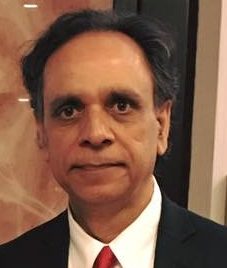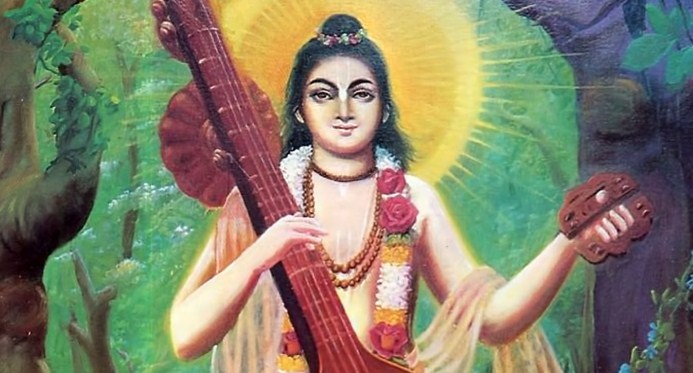By Upendra Mishra
BOSTON—After staying alive, major goal of our life is to be happy. There are many states of happiness. First, we are genuinely happy; second, we are miserable but still feel happy in a delusional way; and third, we are unhappy at the core and we know it quite well, but we still project to the world that we are the happiest.

Of the three categories, the most miserable and deadliest is the third one. In this state, we become a manufacturing machine of stress, which disturbs every aspect of our life. The second one—the delusional one can still be okay because at least our mind thinks we are happy—even though it is delusional in nature, and not real.
Before we get into how do we know we are happy, we should ask: what is happiness? According to Psychology Today, since the 1990s a whole branch of psychology—positive psychology—has been dedicated to pinning happiness down and propagating it.
“More than simply positive mood, happiness is a state of well-being that encompasses living a good life—that is, with a sense of meaning and deep satisfaction,” says Psychology Today. “A growing body of research also suggests that happiness can improve your physical health. Feelings of positivity and contentment seem to benefit cardiovascular health, the immune system, inflammation levels, and blood pressure, among other things. Happiness has even been linked to a longer lifespan—providing more years to continue striving for fulfillment.”
Researchers find that people from every corner of the world rate happiness more important than other desirable personal outcomes, such as having a meaningful life, becoming rich, and getting into heaven, says Psychology Today.
What is Happiness?
“Happiness is not the result of bouncing from one joy to the next; researchers find that achieving happiness typically involves times of considerable discomfort. Money is important to happiness, but only to a certain point. Money buys freedom from worry about the basics in life—housing, food, and clothing. Genetic makeup, life circumstances, achievements, marital status, social relationships, even your neighbors—all influence how happy you are. Or can be. So do individual ways of thinking and expressing feelings,” according to Psychology Today. “Research shows that much of happiness is under personal control. Regularly indulging in small pleasures, getting absorbed in challenging activities, setting and meeting goals, maintaining close social ties, and finding purpose beyond oneself all increase life satisfaction.”
My definition of happiness has often aligned with what Mahatma Gandhi once said: “Happiness is when what you think, what you say, and what you do are in harmony.” This is a great definition of happiness because it integrates all the basic elements that lead to a state of happiness. You can be happy, according to Gandhi, only when you are in complete harmony with virtually everything you think, say and do. You are who you are. You are not manipulating. You are not pretending. You are not lying. You are telling the truth, and you are just acting based on what you feel, think and say. In a nutshell, this type of living removes all the stress from life and make us live and experience our true inner Self.

According to a story in the Chandogya Upanishad, sage Narada one day goes to teacher Sanatkumara, and says: “I know the four Vedas–Rig, Yajur, Sama, Atharva–and the epics, called the fifth. I have studied grammar, rituals, mathematics, astronomy, logic, economics, physics, psychology, the fine arts, and even snake-charming. But all this knowledge has not helped me to know the self. I have heard from spiritual teachers like you that one who realizes the self goes beyond sorrow. I am lost in sorrow. Please teach me how to go beyond.”
Answers Sage Sanatkumara: “Whatever you know is just words, names of finite phenomena. It is the infinite that is the source of abiding joy because it is not subject to change. Therefore, seek to know the infinite.”
“I seek to know the infinite, Venerable One,” asks Narada.
After explaining how to know the infinite, Sage Sanatkumara concludes: “Control the senses and purify the mind. In pure mind there is constant awareness of the self. Where there is constant awareness of the self, freedom eliminates bondage and joy eliminates sorrow.”
So how do you know you are happy? If you have or at least try to practices at least six of the following nine points, you are genuinely happy:
- Peace: No matter what the circumstances, you remain calm and peaceful. You don’t fear, don’t doubt, and possess an innate confidence to deal with anything with your courage of conviction. You live totally stress-free.
- Love: You have a few people in your life who love you and you love them—no strings attached and without any expectation. You become the master of love: to love and to be loved.
- Passion: You become passionate about at least one thing in life, and given time and energy, you can spend 24/7 on your passion or hobby without feeling tired and exhausted.
- Integrity: Living a life with a complete integrity is a fundamental requirement for being peaceful and happy. Remember Gandhi’s definition of happiness! We know we’re in a perfect state of integrity when whatever we think, feel and know inside is expressed outside exactly the same way–without any hesitation–and we act accordingly. “As above, so below. As within, so without.”
- Truth: This is the foundation of a happy life. Truth removes all the obstacles from our life and solves all the problems. It is like a universal key that can open any lock. Remember the mantra “Satyameva Jayate”, which means “Truth alone triumphs” not falsehood. Truth is peace. Truth is energy. Truth is freedom. Truth is joy. Truth is ecstasy. Truth is true liberation. Truth is the solution to all problems, and yes, truth is everything.
- Words: Your words are very powerful. Don’t waste them. Don’t misuse them—even on jokes. “Be impeccable with your word. Speak with integrity. Say only what you mean. Avoid using the word to speak against yourself or to gossip about others. Use the power of your word in the direction of truth and love,” says Don Miguel Ruiz in the Four Agreements.
- Health: We often underestimate the importance of health. To do anything or enjoy, our body has to be healthy. We must treat it like a temple where we live and take care of it diligently with diet, food, exercise, meditation and mindfulness.
- Money: Money is important. In fact, it is very important so that we can take care of necessities of life—housing, food, clothing, children, parents, friends and other important things.
- Purpose: You must have a purpose in life. “The two most important days in your life are the day you are born and the day you find out why,” said Mark Twain.
(Mr. Mishra is managing partner of the Waltham, MA-based integrated inbound marketing and PR firm The Mishra Group. He writes about his three passions: marketing, scriptures and gardening.)















